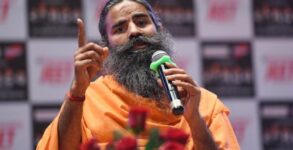In his last address as the President of India, Pranab Mukherjee hailed India’s democracy and Parliament in particular, and urged the lawmakers to “debate, discuss and dissent”.
He will leave the Rashtrapati Bhawan on Tuesday when his successor, President elect, Ram Nath Kovind is sworn in.
Nostalgic about his nearly four-decade association with the Parliament, Mukherjee held important messages for the government and the people. He expressed concern over the declining amount of time spent in lawmaking, and said that the Parliament should
adequately scrutinise and debate laws before they are enacted.
Here is what he said:
- When I speak to you tomorrow, it will be as a citizen– a pilgrim like all of you in India’s onward march towards glory.
- During my five years in Rashtrapati Bhavan, we tried to build a humane and happy township
- Social inclusion would ensure access to the fruits of progress to all.
- We must empower the poorest of the poor and ensure that the fruits of our policies reach the last person in the line.
- For us, creation of an inclusive society has to be an article of faith.
- Creative thinking, innovation and scientific temper have to be promoted in our institutions of higher learning.
- Our universities should not be a place for rote-memorizing but an assembly of inquisitive minds.
- As I had said on assuming Office of the President, education is the alchemy that can take India to its next golden age.
- Power of non-violence has to be resurrected to build a compassionate and caring society.
- Only a non-violent society can ensure the participation of all sections of the people in the democratic process.
- We must free our public discourse from all forms of violence, physical as well as verbal.
- The capacity for compassion and empathy is the true foundation of our civilization.
- Otherwise, a fundamental character of our thought process will wither away.
- But we cannot deny the essential prevalence of multiplicity of opinion.
- There are divergent strands in public discourse; we may argue, we may agree or we may not agree.
- We derive our strength from tolerance; it has been part of our collective consciousness for centuries.
- Plurality of our society has come about through assimilation of ideas over centuries.
- My temple has been the Parliament of India and my passion has been the service of the people of India.
- For the past fifty years of my public life my sacred text has been the Constitution of India.
- Each day of these five years, I was conscious of my responsibility. How successful I was in discharging my responsibilities will be judged, over time, by the critical lens of history.
- For development to be real, the poorest of the land must feel that they are a part of the nation’s narrative.
- I have received much more from the country than I have given; for that, I will remain ever indebted to people of India.
- I am overwhelmed by a deep sense of gratitude for the people of India for the trust & confidence they reposed in me.

















